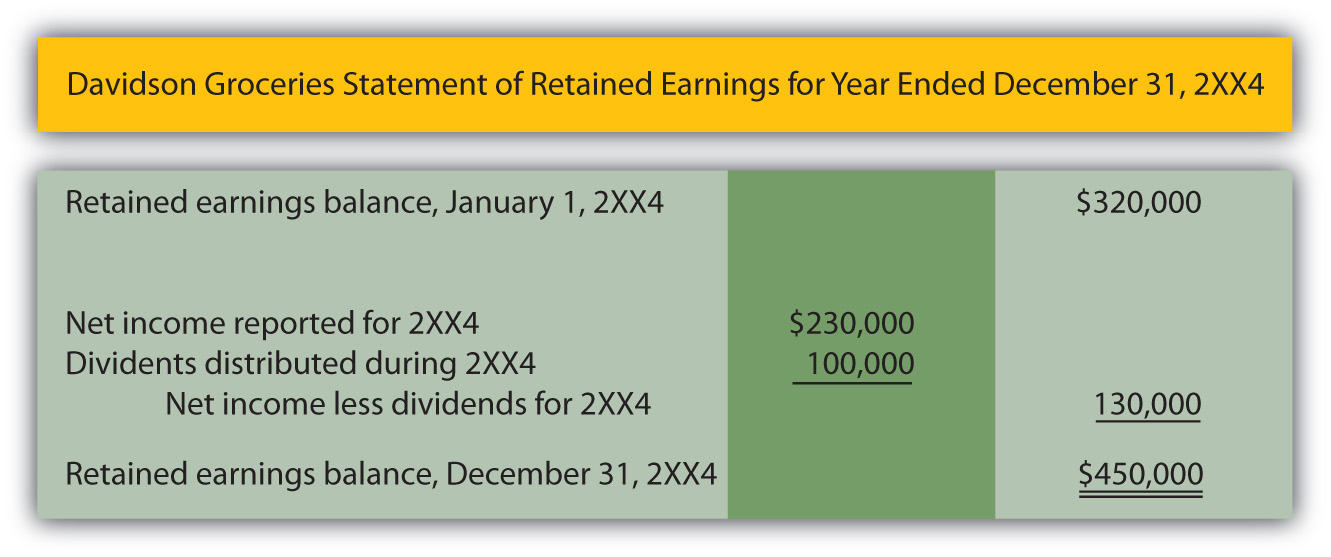

Finance
What Is A Beneficiary In Health Insurance?
Modified: December 30, 2023
Learn about the role of a beneficiary in health insurance and how they can impact your finances. Understand the importance of choosing the right beneficiary for your policy.
(Many of the links in this article redirect to a specific reviewed product. Your purchase of these products through affiliate links helps to generate commission for LiveWell, at no extra cost. Learn more)
Table of Contents
Introduction
Health insurance is a critical component of personal financial planning, providing financial protection against the high costs of medical treatments and healthcare services. When you invest in a health insurance policy, it is important to designate a beneficiary who will receive the benefits in the event of your disability, critical illness, or death.
A beneficiary in health insurance refers to the person or entity who is entitled to receive the insurance benefits. This can be a family member, such as a spouse or child, or even a trust or organization. Designating a beneficiary ensures that the insurance payout is directed to the intended recipient, providing them with the necessary financial support during challenging times.
In this article, we will explore the concept of a beneficiary in health insurance, its importance, the rights and responsibilities associated with being a beneficiary, and how to choose and change a beneficiary. Understanding these aspects will help you make informed decisions when it comes to selecting and managing your health insurance coverage.
What is Health Insurance?
Health insurance is a type of insurance coverage that pays for medical and surgical expenses incurred by an insured individual. It is designed to protect policyholders from exorbitant healthcare costs and provide access to quality medical care when needed. Health insurance plans help individuals and families manage the financial impact of medical emergencies, routine check-ups, and ongoing healthcare needs.
Health insurance policies can vary in terms of coverage and cost, but they generally provide reimbursement or direct payment to healthcare providers for the services rendered. Depending on the plan, health insurance may cover a range of medical expenses, including hospital visits, doctor’s consultations, prescription medications, diagnostic tests, surgeries, and preventive care measures.
Health insurance operates on the principle of risk pooling, where individuals contribute regular premium payments to a collective fund managed by the insurance provider. This fund is then used to cover the medical expenses of policyholders. By spreading the financial risk across a large group of individuals, health insurance ensures that the burden of healthcare expenses is shared among many rather than borne by a few.
There are different types of health insurance coverage available, including individual plans, family plans, group plans through an employer, and government-sponsored programs such as Medicare and Medicaid. Some health insurance plans may also provide additional benefits like dental and vision coverage, mental health services, and maternity care.
It is important to note that health insurance coverage can vary widely depending on factors such as plan type, provider network, deductible amounts, copayments, and out-of-pocket maximums. Understanding the terms and conditions of your health insurance policy is crucial to ensure that you maximize the benefits and minimize your financial liabilities.
Overall, health insurance plays a vital role in safeguarding individuals and families from the financial burden of medical expenses. By having comprehensive coverage in place, individuals can focus on their health and well-being, knowing that they are protected against unexpected healthcare costs.
What is a Beneficiary?
In the context of health insurance, a beneficiary refers to the individual or entity designated to receive the insurance benefits in the event of the policyholder’s disability, critical illness, or death. The beneficiary is the recipient of the financial support provided by the health insurance policy and plays a crucial role in ensuring that the benefits are directed to the intended party.
A beneficiary can be a person, such as a spouse, child, or other family members, or even a trust or organization. The choice of a beneficiary depends on the policyholder’s preferences and the relationship they have with potential beneficiaries.
Designating a beneficiary is an important step in the health insurance policy setup process. It ensures that the insurance payout is directed to the right person or entity and can help provide financial stability during challenging times when medical expenses may be significant.
When the policyholder passes away, the health insurance benefits are typically paid out to the named beneficiary. This can help cover funeral expenses, outstanding medical bills, and provide financial support for the beneficiary’s ongoing healthcare needs. In cases where the policyholder becomes disabled or critically ill, the policy benefits may be utilized to cover medical expenses and provide income replacement.
The role of a beneficiary extends beyond simply receiving the insurance benefits. They also have certain rights and responsibilities. As a beneficiary, it is important to understand these rights and fulfill the responsibilities to ensure a smooth claims process and fair distribution of the benefits.
It is worth noting that beneficiaries can be changed or updated throughout the duration of the health insurance policy. Life events such as marriage, divorce, childbirth, or the passing of a beneficiary may necessitate revisiting the beneficiary designation and making the necessary changes. Regularly reviewing and updating beneficiary information ensures that the benefits are directed as intended and align with the policyholder’s current circumstances and wishes.
In summary, a beneficiary in health insurance is the individual or entity named to receive the insurance benefits if the policyholder becomes disabled, critically ill, or passes away. Selecting a beneficiary is an important step in the health insurance planning process, providing financial security and support during difficult times. Understanding the rights and responsibilities of a beneficiary and keeping beneficiary information up to date are essential to ensure the smooth and effective administration of health insurance benefits.
Importance of a Beneficiary in Health Insurance
The designation of a beneficiary is a critical aspect of health insurance planning. It ensures that the insurance benefits are directed to the intended recipient in the event of the policyholder’s disability, critical illness, or death. Let’s explore the importance of having a beneficiary in health insurance:
1. Financial Protection: Designating a beneficiary provides financial protection to your loved ones in the event of your passing or incapacity. It ensures that the insurance benefits are disbursed to cover funeral expenses, outstanding medical bills, and ongoing healthcare needs of the beneficiary.
2. Peace of Mind: Knowing that you have named a beneficiary in your health insurance policy can provide peace of mind. It allows you to have control over who will receive the insurance benefits and ensures that your loved ones are taken care of financially during challenging times.
3. Swift Distribution of Benefits: By designating a beneficiary, you facilitate the prompt distribution of the insurance benefits. This can be crucial in cases where immediate financial support is needed to cover medical bills or other expenses related to the policyholder’s health condition.
4. Avoiding Legal Complications: Having a named beneficiary can help avoid legal disputes and complexities surrounding the distribution of insurance benefits. Without a designated beneficiary, the payout may be subject to probate, which can cause delays and additional expenses for your loved ones.
5. Flexibility in Choosing a Beneficiary: Health insurance policies offer the flexibility to choose a beneficiary according to your preferences and circumstances. You can select a family member, such as a spouse or child, or even a trust or organization that aligns with your values and objectives.
6. Easy Updates and Changes: Life is dynamic, and circumstances may change over time. Health insurance policies generally allow you to update or change your beneficiary designation whenever needed. This ensures that you can adapt to life events, such as marriage, divorce, or the birth of a child, and ensure that the benefits go to the appropriate recipient.
7. Continuity of Financial Support: Designating a beneficiary ensures that the insurance benefits continue to provide financial support for your loved ones in your absence. This can be especially important for dependents who may rely on your income and assistance for their ongoing healthcare needs.
The importance of having a beneficiary in health insurance cannot be overstated. It offers financial protection, peace of mind, and the assurance that your loved ones will be taken care of in difficult times. It is essential to carefully consider your options when selecting a beneficiary and regularly review and update the beneficiary designation as needed.
Rights and Responsibilities of a Beneficiary
Being named as a beneficiary in a health insurance policy comes with certain rights and responsibilities. Understanding these rights and fulfilling the associated responsibilities is crucial for a beneficiary to effectively navigate the claims process and ensure a fair distribution of the insurance benefits. Let’s explore the rights and responsibilities of a beneficiary:
Rights of a Beneficiary:
- Right to Receive Insurance Benefits: As a beneficiary, you have the right to receive the insurance benefits outlined in the policy when the conditions for payout are met. Whether it is in the event of the policyholder’s death, disability, or critical illness, you are entitled to the financial support provided by the health insurance policy.
- Right to Privacy and Confidentiality: Beneficiaries have the right to privacy regarding their personal information. The insurance provider must handle beneficiary information with confidentiality and ensure that it is protected in accordance with applicable privacy laws and regulations.
- Right to Review Policy Documents: Beneficiaries have the right to review the terms and conditions of the health insurance policy. It is important to understand the coverage details, claim procedures, and any limitations or exclusions that may impact the benefits you are entitled to receive.
- Right to Make Decisions: Depending on the policy’s provisions, a beneficiary may have the right to make decisions regarding the use of insurance benefits. For example, they may have the authority to choose healthcare providers or approve certain medical treatments within the policy’s guidelines.
Responsibilities of a Beneficiary:
- Notify the Insurance Provider: It is the responsibility of the beneficiary to notify the insurance provider of the policyholder’s disability, critical illness, or death as soon as possible. Promptly reporting the event ensures that the claims process can be initiated and the benefits can be disbursed in a timely manner.
- Fulfill Documentation Requirements: Beneficiaries may be required to provide certain documentation to support their claim for insurance benefits. This can include death certificates, medical reports, or any other relevant documents requested by the insurance provider. Meeting the documentation requirements helps facilitate the claims process.
- Cooperate with the Insurance Provider: Beneficiaries have a responsibility to cooperate with the insurance provider during the claims process. This involves providing accurate information, responding to inquiries promptly, and following any instructions or requirements communicated by the insurer.
- Act in Good Faith: Beneficiaries must act in good faith and not engage in any fraudulent or dishonest activities when filing a claim. Providing false information or attempting to deceive the insurance provider is not only unethical but can also lead to legal consequences.
- Manage Benefits Responsibly: Once the insurance benefits are received, beneficiaries are responsible for managing the funds responsibly. This includes using the benefits for the intended purpose, paying any outstanding medical bills, and ensuring that the funds are used to meet the healthcare needs of the policyholder provided for in the policy.
Understanding the rights and responsibilities as a beneficiary is essential for a smooth and fair distribution of health insurance benefits. By fulfilling your responsibilities and exercising your rights, you can ensure a positive insurance experience and make the most of the financial support provided by the policy.
Eligibility to be a Beneficiary
When it comes to designating a beneficiary in a health insurance policy, there are certain eligibility requirements that must be met. The eligibility criteria ensure that the chosen beneficiary is legally qualified to receive the insurance benefits. Let’s explore the factors that determine eligibility to be a beneficiary:
1. Relationship: The most common beneficiaries in health insurance policies are family members, such as spouses, children, or parents. These individuals are typically considered eligible to be designated as beneficiaries. However, it is essential to review the specific policy terms to understand the extent of eligible relationships.
2. Age: Age can play a role in beneficiary eligibility. While there may not be age restrictions in designating a beneficiary, some policies may specify a minimum age at which a beneficiary can directly receive the benefits. In such cases, a trust or guardian may need to be established to manage the funds until the beneficiary reaches the required age.
3. Mental Capacity: Beneficiaries must have the mental capacity to understand their rights and responsibilities as a beneficiary and manage the insurance benefits appropriately. If the intended beneficiary lacks the mental capacity, a legal guardian or trustee may be appointed to act on their behalf.
4. Trusts and Organizations: In addition to individuals, health insurance policies often allow beneficiaries to be designated as trusts or organizations. This is particularly applicable when the policyholder wants to ensure that the insurance benefits are directed towards a specific cause or institution, such as a charitable organization or a trust established for the benefit of a loved one.
5. Insurable Interest: In some cases, the beneficiary must have an insurable interest in the life or well-being of the policyholder. This means that the beneficiary must have a financial or emotional connection, such as a family relationship or dependency, that makes them eligible to receive the insurance benefits.
6. Co-Ownership or Legal Entity: In certain situations, a beneficiary may be a co-owner or legal entity, such as a business or partnership, that holds an insurable interest in the policyholder. In these cases, the eligibility requirements may vary based on the specific policy terms and the relationship between the beneficiary and the policyholder.
It is important to carefully review the health insurance policy documentation and consult with the insurance provider to understand the specific eligibility requirements for designating a beneficiary. Each policy may have different guidelines and restrictions, so it is crucial to ensure that the chosen beneficiary meets the necessary criteria.
Remember, eligibility to be a beneficiary may also change over time due to various life events or changes in relationships. Regularly reviewing and updating beneficiary designations can help ensure that the insurance benefits go to the intended recipient according to your current circumstances and wishes.
How to Choose a Beneficiary
Choosing a beneficiary for your health insurance policy is an important decision that should be made carefully. The selected beneficiary will be the recipient of the insurance benefits in the event of your disability, critical illness, or death. Here are some factors to consider when choosing a beneficiary:
1. Relationship: Consider your relationship with potential beneficiaries. Common choices include spouses, children, parents, and other family members. You may also choose to designate a trust or organization if you have specific charitable or financial objectives in mind.
2. Dependents: If you have dependents, particularly those who rely on your income or assistance for their healthcare needs, it may be appropriate to designate them as beneficiaries. This ensures that they will have financial support and access to healthcare in the event of your incapacity or passing.
3. Proximity and Accessibility: Consider the proximity and accessibility of potential beneficiaries. Choosing someone who is geographically close or readily available can help facilitate the claims process and ensure that the insurance benefits are distributed promptly and efficiently.
4. Age and Maturity: When selecting a beneficiary who is a minor, it may be advisable to establish a trust or name a guardian to manage the insurance benefits until they reach an appropriate age or level of maturity. This ensures that the funds are used for their benefit and in accordance with your intentions.
5. Financial Stability: Consider the financial stability of potential beneficiaries. If you have concerns about their ability to manage a large sum of money or if you wish to provide ongoing financial support, establishing a trust or naming a responsible trustee may be a suitable choice.
6. Life Changes: Regularly review and update your beneficiary designation as life circumstances change. Events such as marriage, divorce, births, deaths, or changes in relationships may necessitate revisiting your choice of beneficiary to ensure that your wishes are accurately reflected in your health insurance policy.
7. Communication: Communicate with potential beneficiaries and ensure that they are aware of their role in your health insurance policy. Discuss your intentions and educate them about the importance of health insurance and the benefits they will receive in the event of a claim.
It is essential to consult with your insurance provider and seek legal advice if needed when choosing a beneficiary for your health insurance policy. They can help guide you through the process and ensure that all legal requirements and documentation are fulfilled.
Remember, choosing a beneficiary is a personal decision that depends on your individual circumstances and preferences. Take the time to carefully consider your options and make a decision that gives you peace of mind, knowing that your loved ones will be cared for in the future.
Changing Your Beneficiary
Life is dynamic, and circumstances can change over time, requiring updates to your health insurance policy, including the designated beneficiary. Fortunately, most health insurance policies allow you to change your beneficiary to ensure that the insurance benefits are directed to the intended recipient. Here is a step-by-step guide on how to change your beneficiary:
1. Review Your Policy: Start by reviewing your health insurance policy documentation. Familiarize yourself with the terms and conditions regarding changing the beneficiary designation. Pay close attention to any specific requirements or procedures outlined by your insurance provider.
2. Determine Your Updated Beneficiary: Consider who you would like to designate as the new beneficiary. Assess your current relationships, financial circumstances, and any changes in your family structure. Common choices include spouses, children, parents, or other family members. You may also choose to designate a trust or organization.
3. Contact Your Insurance Provider: Get in touch with your insurance provider to initiate the beneficiary change process. They will provide you with the necessary forms and instructions to update your beneficiary designation. Follow their guidelines closely to ensure that your request is processed smoothly.
4. Fill Out the Required Forms: Complete the beneficiary change forms provided by your insurance provider. Provide accurate and up-to-date information for both the existing and new beneficiary. Depending on the policy and provider, you may need to provide supporting documentation, such as proof of relationship or legal documents related to trusts or organizations.
5. Submit the Forms: Send the completed forms and any required documentation to your insurance provider. Follow their instructions for submission, which may include mailing the forms or submitting them electronically through an online portal. Keep a copy of the documents for your records.
6. Confirm the Change: Once your insurance provider receives your beneficiary change request, they will review and process it accordingly. They may reach out to you for any additional information or clarification. Once the change is confirmed, you will be notified of the updated beneficiary designation.
7. Communicate the Change: Inform the new beneficiary about the change and ensure that they are aware of their role in your health insurance policy. Share any relevant details and documentation with them, as necessary.
8. Regularly Review and Update: Continuously review your beneficiary designation to ensure that it aligns with your current circumstances and wishes. Life events such as marriage, divorce, births, deaths, or changes in relationships may necessitate revisiting and updating your beneficiary designation periodically.
It is recommended to consult with your insurance provider or seek legal advice if you have any questions or concerns about changing your beneficiary. They can provide guidance specific to your policy and ensure that the process is completed correctly.
By regularly reviewing and updating your beneficiary designation, you can ensure that the insurance benefits are directed as intended and provide financial security to your chosen recipient in the event of disability, critical illness, or death.
Conclusion
Choosing a beneficiary in your health insurance policy is a crucial step in ensuring that your loved ones are financially protected in the event of disability, critical illness, or death. By designating a beneficiary, you can have peace of mind knowing that the insurance benefits will be directed to the intended recipient and provide the necessary financial support during challenging times.
We explored the concept of a beneficiary in health insurance and discussed its importance in providing financial protection and peace of mind. We also delved into the rights and responsibilities of a beneficiary, emphasizing the need to fulfill these responsibilities to ensure a smooth and fair claims process.
Understanding eligibility requirements and how to choose a suitable beneficiary is essential. Factors such as relationship, dependents, financial stability, and future needs should be carefully considered when making this decision. Regularly reviewing and updating your beneficiary designation will help ensure that it aligns with your evolving circumstances.
Changing your beneficiary is a straightforward process that involves reviewing your policy, determining your updated beneficiary, contacting your insurance provider, completing the necessary forms, and confirming the change. It is important to communicate the change to the new beneficiary to ensure they are aware of their role and responsibilities in your health insurance policy.
By following these steps and staying proactive in managing your beneficiary designation, you can ensure a seamless and effective administration of health insurance benefits, providing financial stability and support to your loved ones in times of need.
Remember to consult with your insurance provider or seek legal advice if you have any questions or concerns regarding your beneficiary designation. They can provide personalized guidance and ensure that you make informed decisions based on your specific situation and policy terms.
Overall, choosing a beneficiary is an important aspect of health insurance planning. It allows you to prioritize the financial well-being of your loved ones and make sure that the insurance benefits serve their intended purpose. Take the time to carefully consider your options, communicate your intentions, and periodically review and update your beneficiary designation to ensure that your health insurance policy remains aligned with your wishes.














